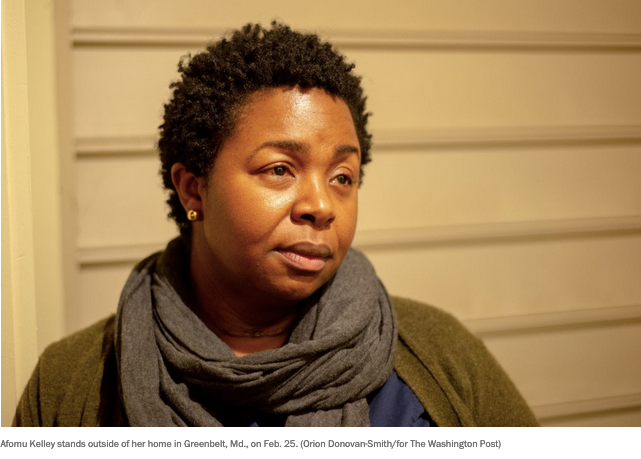About US is a new initiative by The Washington Post to cover issues of identity in the United States. Sign up for the newsletter.
Afomu Kelley was just 11 years old when she left Liberia with her mother in the early days of a civil war in 1990. She remembers standing in a crowd jostling to board an airplane to the United States for what she thought would be a six-week vacation.
Instead, the war in Liberia escalated and Kelley, now 40, never returned to the West African country. She grew up in Northern Virginia, where she finished high school early, and attended the University of Maryland. She has an American accent. Sometimes she doesn’t feel like an immigrant.
But at the end of this month, she may be forced to return to a homeland she barely remembers.
On March 31, the program that has allowed Kelley and more than 800 other Liberian immigrants to live legally in the United States for decades will end, the result of President Trump’s decision to terminate a protection against deportation that has been in place for nearly 28 years.




